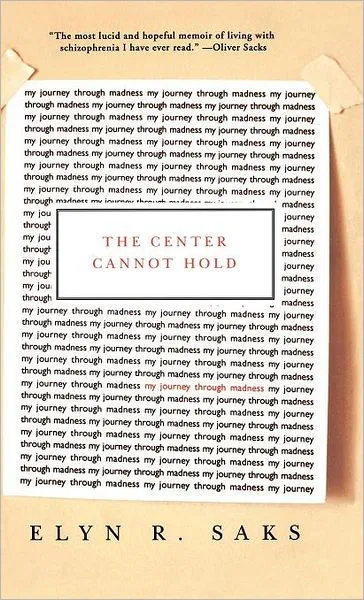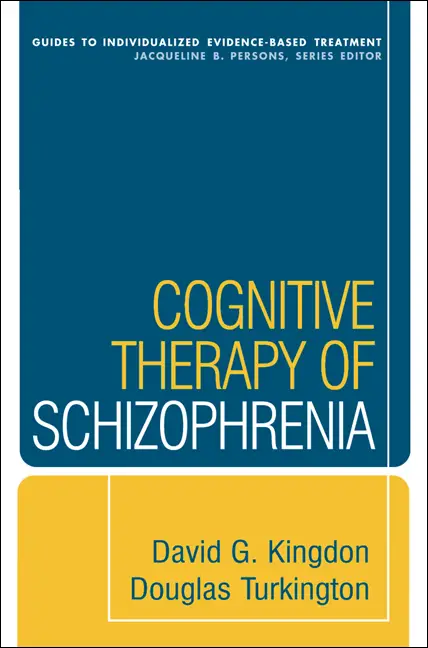This is a piece on books as therapy for mental illness, plus a reading list relevant to schizophrenia. Put these on your reading list, or stock them in your bookshop.
Bibliotherapy, or “healthy reading,” refers to the use of books as therapy or for understanding and solving problems in our health and development. For a long time, mental health experts have understood the importance of books in treating mental illness.

The bookshop can thus be perceived as a provider of therapies for all kinds of human ailments, even the most severe. Do not underestimate your power to improve someone else’s life through books.
Prescribing Books as Therapy
In the UK, health professionals have been prescribing certain carefully chosen books to their patients. As an example, “Healthy Reading – East Lothian” was introduced in 2007. This region, by the way, is just near Edinburgh where the Edinburgh Community Library is set to open (see previous post… well done, Alasdair Corbett, for building a therapeutic center for your community!).
A large sample evaluation of this project indicated that library-based bibliotherapy can be effective in treating mental health problems.
The library developed a new membership category, allowing non-members to access books from a certain list as long as they had a prescription from a mental health specialist or a doctor. The borrowing time was extended to 12 weeks and staff also softened arrangements for pursuing overdue books.
For this project, the real challenges, in the end, came from the healthcare professionals. Did they remember that books could be therapy? Did they know enough about the books…had they read any? And did they think the patient could successfully engage with the books and the library?
From the words of the project participants, we can learn a lot about how to ensure people with mental illness can access books that could change their lives.

Doctors appreciated the opportunity to formalize their book recommendations by writing them as a prescription:
It’s good that, you know, not just to be writing on a scrap of paper. I think it looks more professional, more thought out, more like you’re selecting something relevant to their treatment … Whereas quite often in the past I’ve written things on post-its, you know, “go and look out this book” or, you know, “there’s this nice book that’s got a yellow cover” [laughs] and I don’t think that’s as effective. I think it’s far more effective to have it on a formalised bit of paper exactly what you’re recommending that they look at.
It improved access for people who may not normally use libraries:
It was funny because initially I didn’t really see the point of it [the paper prescription] where you could just suggest a book to someone and they would be able to go and get it themselves. But I didn’t realise there are so few people nowadays that are members of libraries. I don’t think there was anybody that I did a prescription for that was a member of a library at all, so that was one thing that was helpful, that they didn’t have to be a member. They could just go in with the prescription and get access to the book without having to go – I don’t know what you need to do to join now, ID and all the rest of it. I think if that was the case then a lot of people wouldn’t have bothered. So I think it may be easier for people to get access to literature.
Having a prescription made patients more confident to access books:
I was just thinking the thing about the prescription is that the person doesn’t have to go into the library and not know what to do or where to go because they know that they just have to hand that over and the book will be given to them. And there’s something probably quite safe about that for people, rather than going into a building they’ve never been in and thinking everybody’s going to be looking at me because I’ll be the only person that doesn’t know what I’m looking for, etc. So I think that’s quite a helpful aspect of it.
It was discreet and less stressful:
I was quite surprised at the number of folk who really did go and get it [the book] and I think that the reason they did was because having explained the scheme to them and said you know, “you’re not time limited in how long you can borrow this” and, you know, “you’re not going to get hassle about returning it” and “… the librarian isn’t going to say ‘hey! here’s your book on depression’ and announce it to the whole library”. Because I’ve explained the scheme, the way that it’s been set up, people have been a bit more reassured by that and I think they’ve gone and done it that way.
And it was affordable, which is important because many people with severe mental illness are also affected by poverty:
A lot of our patients couldn’t afford to go a bookshop and buy one of these books and I think if they know that the library’s got them in stock and that it will be a discreet service and they’ll be able to keep the book for eight weeks or whatever, I think that’s quite helpful and a lot of patients don’t want medication you know, I’ve got patients mainly with mental health issues, they would rather, for example, get one of the workbooks and work through that than take medication. So I think it’s replaced medication in some cases.
Another example of successfully integrating books into the lives of patients with mental illness comes from 2008:
Residents at Springfield Hospital described their days as ‘long and empty’. A library was introduced, providing fiction, non-fiction and talking books, run by a librarian who emphasized the importance of catering for the specialist needs of ethnic minorities and the physically handicapped. Users frequently commented that they would not consider borrowing from a public library because of the stigma attached to mental illness. The library service ran events and workshops for patients, often involving staff from the public library and museum. Patients also helped operate the library as part of the health authority’s work experience project.
Booklist on Schizophrenia
I asked a friend of mine, an education professional who also supports her daughter with schizophrenia, to recommend her top three reads. Here they are:

The Center Cannot Hold: My Journey Through Madness by Elyn Saks, Hachette Books
My friend writes:
“This book is a classic in literature on schizophrenia. Nobody had written such a book before about experiencing schizophrenia as Elyn did in her book. In breathless and graphic detail, Elyn takes the reader into her horrific experiences in the psych wards, psychotic episodes, her first psychotic episode, refusing medication, relapsing her way of processing experiences, and so on. Elyn is a heavyweight in the field of schizophrenia, making a difference and developing new policies regarding restraints, etc. Elyn is associate dean and Orrin B. Evans Professor of Law, Psychology, and Psychiatry and the Behavioral Sciences at the University of Southern California Gould Law School, an expert in mental health law, and a MacArthur Foundation Fellowship winner. She lives with schizophrenia and has written about her experience with the illness in her award-winning best-selling autobiography, The Center Cannot Hold, published in 2007. She has a well-viewed TED talk and more on Youtube. It’s a very highly respected and regarded book to have on the list.”
Schizophrenia: An Unfinished History by Orna Ophir, Wiley
“This is a very current publication and is the best l have come across that gives an excellent, sequential, well-written overview on the very beginnings of the history of schizophrenia through to today. It helps to understand the formation, the whys, and understandings about it. I find it extremely interesting reading. The author shows a good grasp of the complexities, issues, and current thinking on the illness. It’s a fresh and well-informed book on the subject.”

Cognitive Therapy of Schizophrenia by Douglas Turkington and David Kingdon, Guildford Press
“This essential book is one of the best schizophrenia books for patients, allies, and mental health professionals alike. It presents treatment options to alleviate schizophrenia symptoms beyond medication. Through chapters on topics like psychoeducation and normalization, intervening with delusions and hallucinations, and negative symptoms, this comprehensive book about understanding schizophrenia fills the gap in knowledge about how to treat schizophrenia with psychotherapy. A very good practical, reference book to have on hand for the carer. Educational and a well-resourced, referenced book.”
In conclusion…
Sarah Davis, writer and blogger at Broke by Books, has written an important post featuring her top 20 picks for books about schizophrenia. Diagnosed with schizoaffective disorder bipolar type, she journeyed through non-fiction to find the most helpful books. Head over to her page to read more. Thank you, Sarah!
One can never have too many book recommendations.
What are your best picks for living with and treating mental illness?
